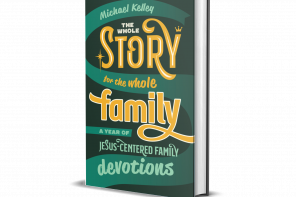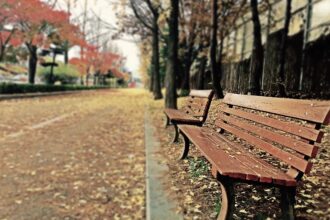For my wife and I, this past year has represented an acceleration in time. It’s not that time has gone by any faster, of course; but rather that it’s felt that way. This was the year, I think, when both of us realized at separate times the true age of our children.
I know that sounds silly, because how can you not recognize how hold your kids are? After all, they have a birthday every year. You celebrate it. You know it. And you know absolutely with your mind how old each of them are. At the same time, though, it’s possible that as a parent you can just keep parenting your children the same way you did when they were younger.
By way of illustration, consider this: You would not keep feeding your kids baby food when they are 12 and 13 years old, right? Of course not. And yet many of us never consciously adapt and grow in our parenting at the same pace as our children age. We find ourselves stuck in the same parenting dynamic we were when they were young because that’s what we know. It’s what we’re comfortable with. And it worked reasonably well then.
One of the challenges of parenting, then, is growing with your children. To that end, we have found it helpful to think about the different stages of parenting like the following. Keep in mind, though, that I’m not a therapist. I’m not an educational expert. I’m a dad – just a regular, old dad trying to figure this thing out one day at a time. Nevertheless, though, thinking in these categories might be helpful to you as well:
1. Protector
This is where everyone starts. When you first have children, your basic role as a parent is just to keep them from harm. You control every part of their lives with the end of making sure they are safe, healthy, and growing, from what they eat, to what they watch, to what they do, to the people they interact with. You, as a parent, are their protector. And when you think of it like that, it gives you a lot of freedom.
That means you don’t have to necessarily concern yourself with teaching them everything in the world. It’s not wrong, of course, to try and help them learn – we should do that. But our primary role is that of protector above all else.
2. Teacher
But then things change. It’s not that we stop protecting our children; we certainly still do. And we certainly still have a good deal of control over them. But our mindset at some point has to shift from being primarily concerned with protecting them, to being primarily concerned about teaching them. But the teaching here is really still from a directive standpoint. We are teaching them good and bad, right and wrong, this way and that. In other words, our teaching is basically about the facts of the world and life as we know it.
When we are teaching, we are laying the groundwork for what comes after. We are helping set a foundation for truth; we are forming a worldview into our children. We are reading them the Bible, talking to them about what it means, and helping them understand who God is and their need of grace.
3. Coach
But then things change again, and this is the stage we are in with two of our kids right now. We are moving from being the teacher who has all the answers and dispenses information to the students to being the coach. The coach is still the one who is designing the game plan, but no longer the one who actually implements and executes is. In this stage, we are no longer teaching our children what to think; we are showing them how to think for themselves.
Along with that transition comes a greater degree of freedom. Teenagers need to be able to have real conversations for themselves with their teachers, with their parents, and with their peers. The coach doesn’t solve the problems on behalf of their kids any more; rather, they are standing on the sidelines helping the children know how to solve problems for themselves.
4. Cheerleader
And then things change again. This is rapidly moving toward us. It’s the moment when we move from being coach to just being the cheerleader. This is when our children are fully autonomous, making decisions on their own. It’s when they are deciding what to do with their time, their money, their talents – their everything. And you hope and pray that by the time they get to this point you’ve done what you could to protect them, to teach and direct them, then to coach them so they are ready and equipped to make decisions on their own.
Now the reason thinking in these categories has been helpful to us is because it’s a hard transition to move from one stage to another. It’s been helpful at times for my wife and I to remind each other that, at least for a couple of kids, we aren’t meant to teach them as much as coach them. It helps us, in other words, to back off a little bit. Not completely, but still to give our children the freedom to operate more in the world.
Kids grow. And as they do, it seems like the wise thing for parents to do is grow alongside them. By God’s grace, then, we can grow together.
Subscribe to MichaelKelley.co
Never miss a new post. Subscribe to receive these posts in your inbox and to receive information about new discipleship resources.






I can relate to this entirely, as I myself have just had my eyes opened to how I am “looking after” my older children (older than yours). One day, I just realized that I don’t have to do a lot of things for them anymore. It’s better for them to take on independance, although two of them still live in my house. I found recently that I can guide them with words and be there for them when they need to talk, but they have to step up and forge ahead, and learn how things work and how to relate to the big world. There are many helpful people in it, to help them. They are (for the most part) happier when they veer ahead and find they are capable of more, as they take those new steps to go where they need to go, and do what is needed for good success.
………..a sign in our town says: it can be easier to “let go” than it is to “keep hanging on” to some things……………sometimes we do need an eye-opener to cause us to “see” what to let go of.